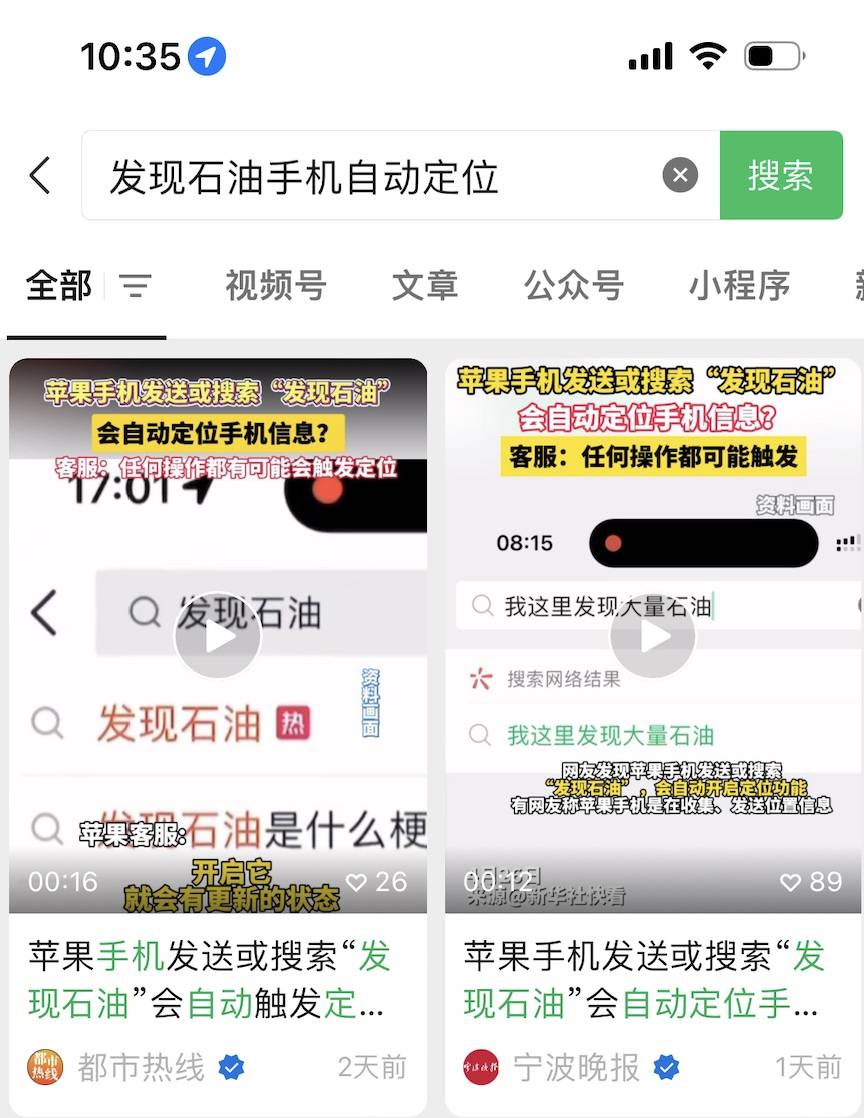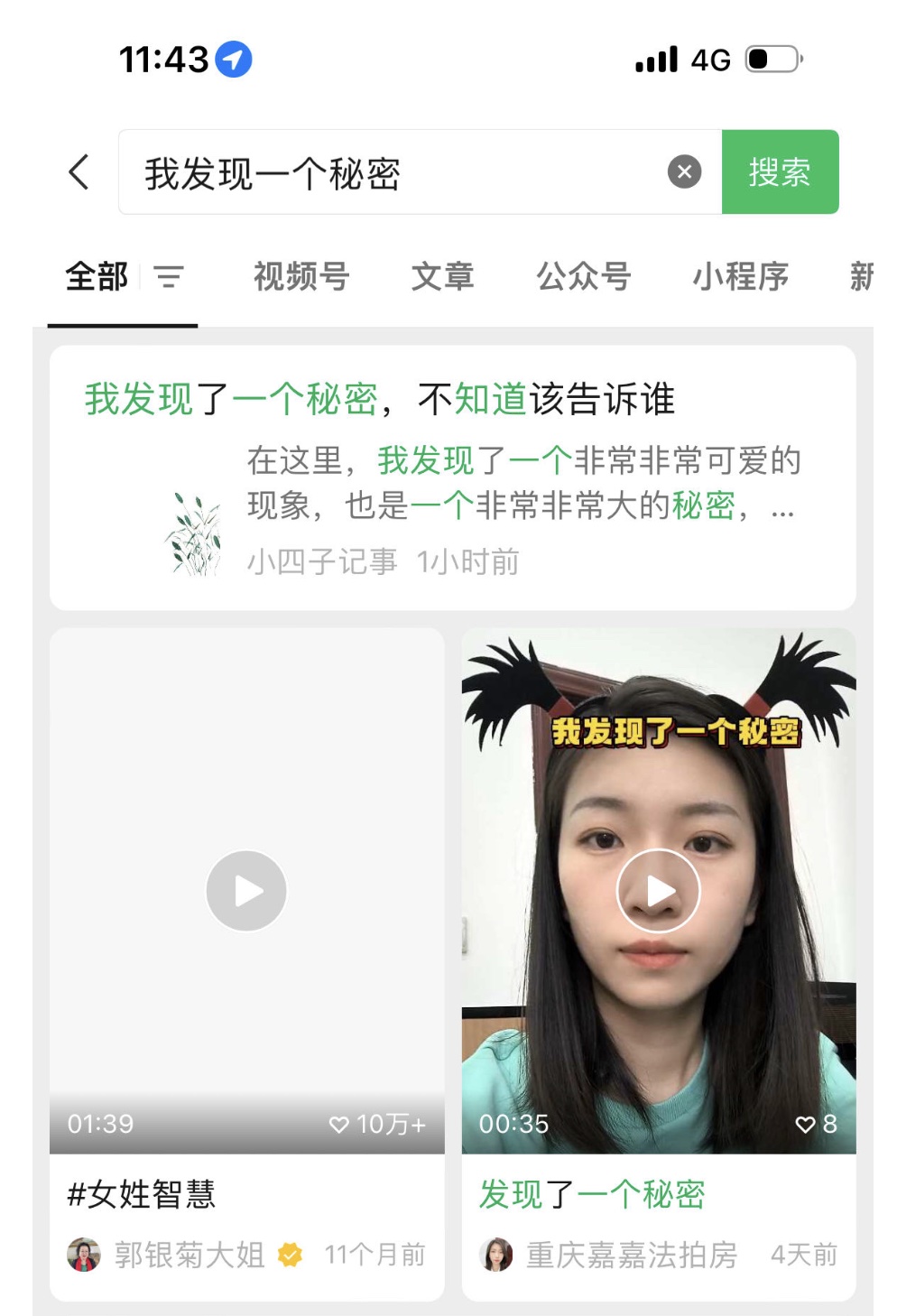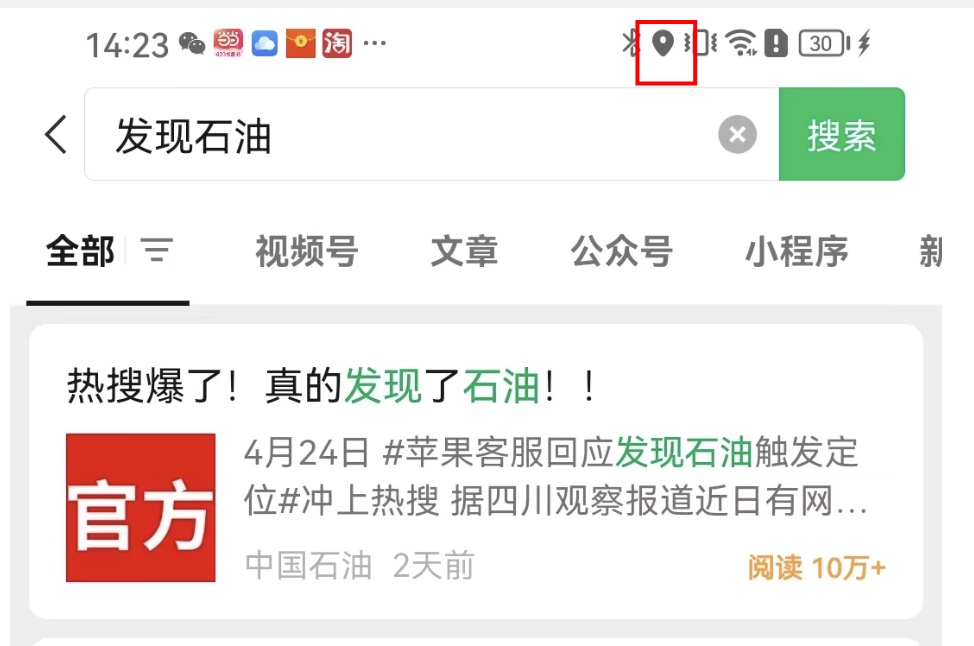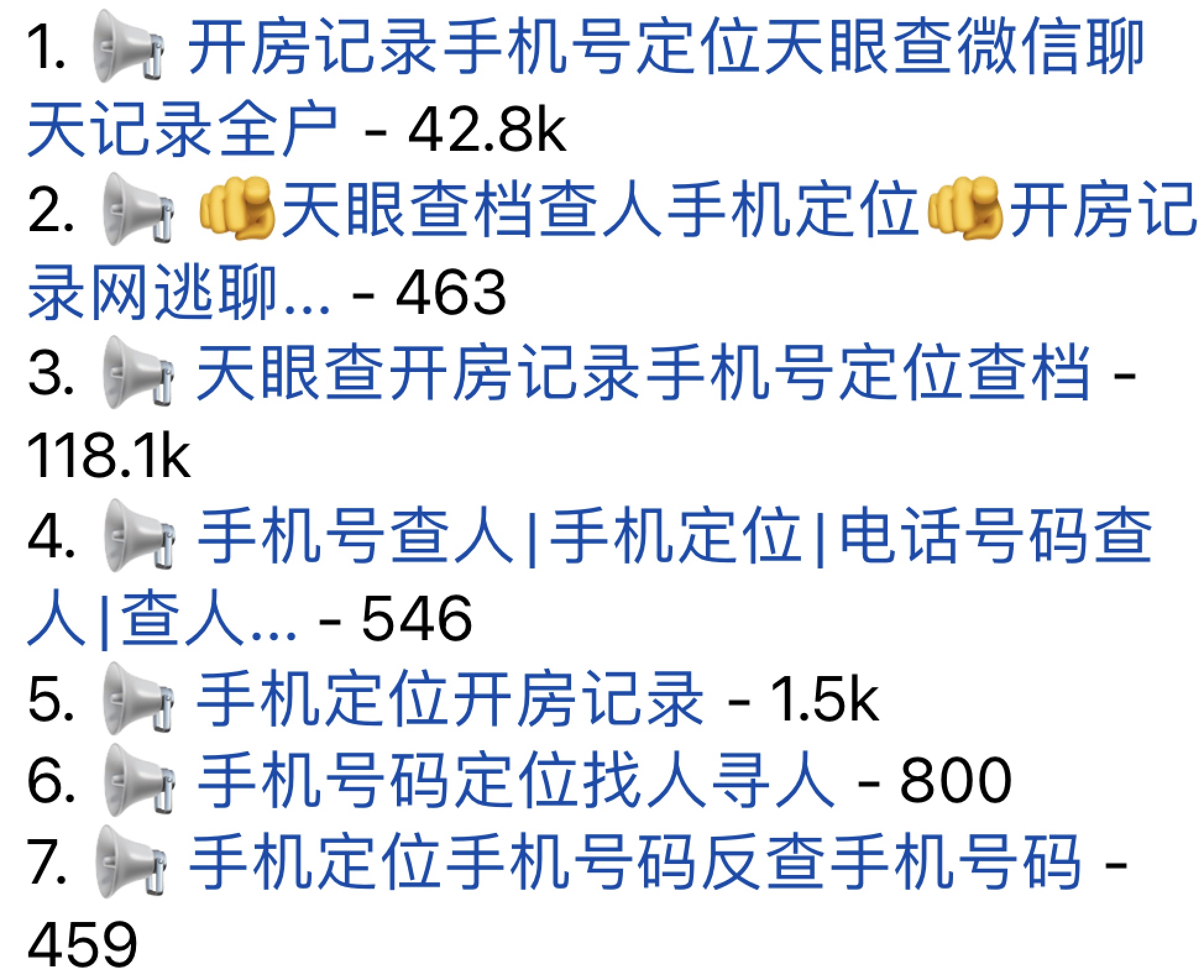One of the recent viral trends on Chinese social media is the phrase "discovered oil," often paired with dramatic music and suspenseful visuals. As someone working in GIS, I’m naturally sensitive to the term "location." When I saw the buzz online, I decided to run some tests myself and share my observations on how location access works across different devices.
Note: All test results are based solely on devices I own or borrowed. They reflect personal experiences and may not represent universal behavior. All tests were performed within the WeChat app.
Device 1: iPhone 15 with iOS 17

Confirmed: after location access is triggered once (e.g., after searching for "oil"), repeating the same keyword does not show the location icon unless enough time has passed or the location has changed. This behavior isn’t limited to the word "oil."

Even unrelated keywords like “I found a secret” can trigger location access if you're in a new area.
Device 2: iPhone 6s Plus with iOS 15
This older device performs similarly to the iPhone 15.

Location prompts are also triggered by other seemingly unrelated keywords.

I'm not sure why certain phrases are of interest, but they still prompt location access.
Device 3: Huawei P70 with HarmonyOS 4.2
Tested on a borrowed device. The first search for “discover oil” triggered location access. However, repeated searches didn’t show the icon again—likely using the same logic as iPhones.
Device 4: Huawei Nova 5 with HarmonyOS 3
My previous phone showed the same behavior.

Location icon appears the first time, and not afterward unless conditions change.
Summary and Assumptions
This doesn’t appear to be an iPhone-specific issue—or a brand issue at all. It seems to be linked to whether you’ve granted an app location permission. When the icon appears, it means the app (in this case, WeChat) is accessing your location.
If an app were secretly tracking you, why would it show a system icon at all? There's no reason to expose that unless the intent is legitimate.
Some speculate that WeChat uses this for placing user comments on maps. That seems unlikely since IP-based location would suffice. Others suggest it's to offer better location-based services, like showing nearby shops when searching for tea. That seems more plausible.
A Few Thoughts on Location Technology
I’ve written several articles on location tracking before:
- Summary of Methods to Locate Users via IP
- More on IP-Based Location Using ip2region
- Can a Phone Number Reveal Your Location?
- Get GPS Coordinates via HTML5 and Display on Google Maps
There are three main types of location tracking users encounter on smartphones:
- GPS-Based Location (high accuracy, requires permission)
- Phone Number or Cellular Tower Location (restricted, mostly for law enforcement)
- IP-Based Location (low accuracy, no permission required)
In terms of accuracy: 1 ≈ 2 > 3
How to Protect Your Privacy
- GPS Location: Limit app access to GPS, but most apps request always-on permission. You’d need to manually toggle it each time (e.g., turn on for Moments, then turn off again).
- Phone Number Location: The most effective solution is to remove your SIM card—yes, thieves know this too.
- IP-Based Location: Easiest to bypass using VPNs or proxies, but accuracy is already low and usually not a concern unless strict privacy is needed.
Some people say: "I’m okay trading privacy for convenience." That’s understandable, but be aware of the risks:

Your data may be more exposed than you think. Many of these "phone number location" services don’t use telco infrastructure—they’re sourcing location from apps installed on your phone.
Disclaimer: Though I’ve written about phone-based location, I do not offer location-tracking services. Please don’t contact me asking to trace lost phones or cheating spouses—I won’t do it. It’s illegal, and I don’t want to end up in trouble.
Final Thoughts
We live in an age of information overload. The digital world has broken down traditional knowledge barriers, but it’s also created new echo chambers. Emotional short videos pull your strings—making you angry, touched, amused—all to eventually monetize your attention.
From Huawei vs Apple, to gender debates, to livestream dramas—it’s all part of the "attention economy." The more extreme the content, the more viral it becomes. Truth starts to fade into irrelevance. But as audiences, we should ask ourselves: if our entire worldview is being manipulated by 30-second videos, isn’t that just a little tragic?
